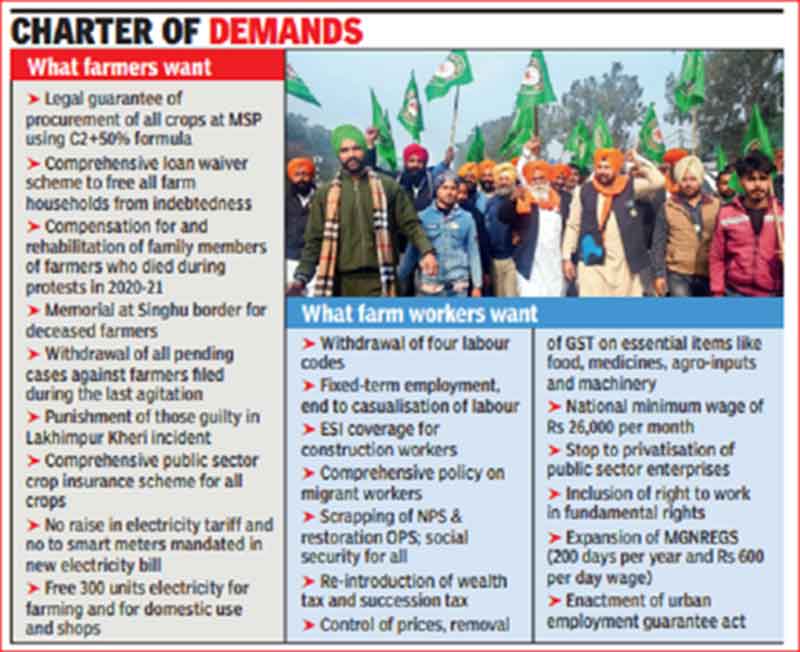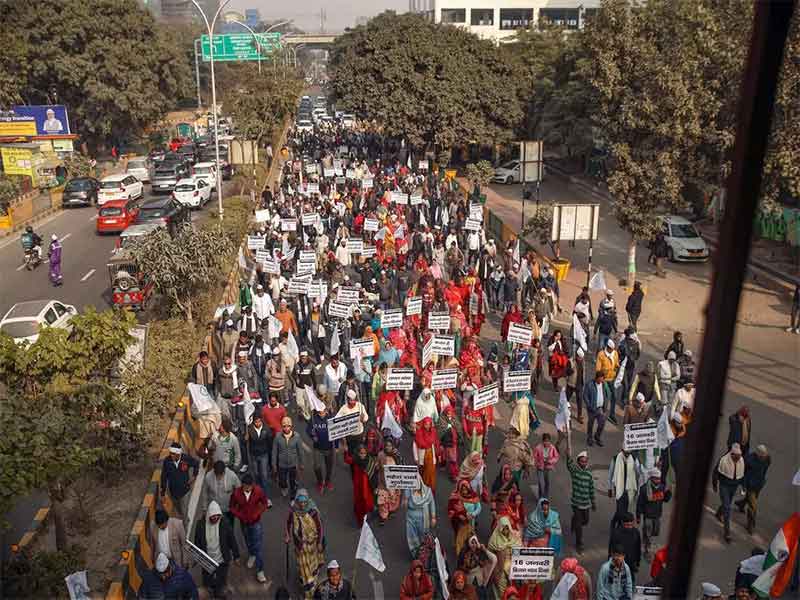
The Indian rightist government, intoxicated by its power induced due to number of seats occupied by its party in the Lower House of Parliament which enabled it to form the government without the need for a political alliance, has assumed power to be absolute. Although it has a dummy alliance under the umbrella named as the National Democratic Alliance (NDA), it is a dummy because they are not equal partners and the ruling party sees no reason to consult them.
In democracy or otherwise, it is a natural human instinct to consult the aggrieved party that could be affected either positively or negatively by the laws the government plans to pass with good intention. But what would you call a government which doesn’t believe in consultation, however important the issue may be? Can we call it non-democratic or maybe a dictatorship? Or, perhaps this is the arrogance of numbers in democracy, which is technically a majority rule through parliament. However one phrases it, the non-consultative attitude of the government in any democracy cannot be worded as a positive indicator of government behavior.
The current farmer protest in India is the result of this non-democratic attitude to introduce the three bills (a. Farmers’ Produce Trade and Commerce (Promotion and Facilitation) Act, b. Farmers (Empowerment and Protection) Agreement on Price Assurance and Farm Services Act, and 3. the Essential Commodities (Amendment) Act.) without consultation and passing them in parliament without discussion. We may call this attitude as an ‘imposition’. In the context of India, which is an agrarian country where more than 65% of the population lives in rural India and more than 45% of population are directly involved in agriculture, the introduction or amendment of any laws related to agriculture is a challenge, indeed; but not impossible if exercised democratically. Similarly, disapproving a bill passed by a government with comfortable majority is challenging but not a challenge which is impossible to oppose.
The protest is not just because of disagreement with the reforms or changes brought in laws related to agriculture, but rather that the farmers are even doubtful of the intention behind the so-called reforms. When the perception of hidden intention becomes clearer and louder, the future looks bleaker, or call it murkier. And when the people involved (here the farmers) start seeing the dark future today and believe this future can be altered or corrected, then it starts taking the shape of a ‘Movement’. As protests are rising, more and more farmers are joining the protest which is being fueled by future food insecurity. Many more institutions and people of various walks of life are bound to join, ranging from political parties to students to various religious groups and several media organizations; in fact, this movement is perceived to be inching towards success. Let’s try to further understand what are the demands of farmers? Farmers are demanding just reinstallation of Minimum Support Price (MSP) with guarantees of no purchase below the minimum price.
Is Minimum Support Price (MSP) beneficial to the public?
The minimum support price (MSP) is defined as ‘an agricultural product price set by the Government of India to purchase directly from the farmer. This rate is to safeguard the farmer to a minimum profit for the harvest’. Personally, I think that MSP is actually a very innovative and self-reliant process of providing protection to the farming community besides food security. Self-reliant, or call it self-sufficiency in food is, in fact, an issue of national security for any nation in times of emergency. This national security can only be provided by the hardworking farmers. That reminds me of the famous slogan given by the second prime minister of India, Mr Lal Bahadur Shastri in 1965, “Jai Jawaan Jai Kisaan” (Hail the Soldier, Hail the Farmer). The newly introduced law takes away the MSP. It also removes many of the agricultural products from essential products, which now, in effect, enables hoardings for the purpose of creating artificial shortages to benefit from higher prices. In addition, the new law limits the farmer’s grievances to the office of Sub-Divisional Magistrate (SDM) and prohibits civil courts from admitting farmer’s plea.
But will the new law benefit the general public? The new laws are claimed to be designed to enable the entry of large corporations into agriculture and this is evident due to changes in legal and taxation jurisdiction from state to national government. So, my understanding is, no! It will not benefit the public as corporatization means maximization of profit. Only strong competition can bring the prices to a reasonable level. But, the fear of oligopoly (which is a market structure with a small number of firms, none of which can keep the others from having significant influence) or monopoly is very evident, especially when it is apparent that government favors very specific corporations.
What if the government bows to the farmers and criminalizes sales below MSP; will that benefit the general public? Again, I don’t think it is going to benefit the general public, as MSP will only ensure rises in food prices. But, I would prefer MSP as that would empower the farmers economically, which would mean higher economic spread for the people connected with the farming industry (more than 50% of the population). This surely is important for long term economic sustainability as it empowers the large population to spend; meaning an increase in the circulation of money and, it will positively impact UN Sustainable Development Goals (SDGs) no: 1 No Poverty, no:2 Zero Hunger, no: 3 Good Health, no:4. Quality Education (due to improved income), no:13 Climate Action and goal no: 15 Life on Land.
Dr Kaleem Alam, Islamic Economics Institute, King Abdulaziz University
SIGN UP FOR COUNTERCURRENTS DAILY NEWSLETTER














































